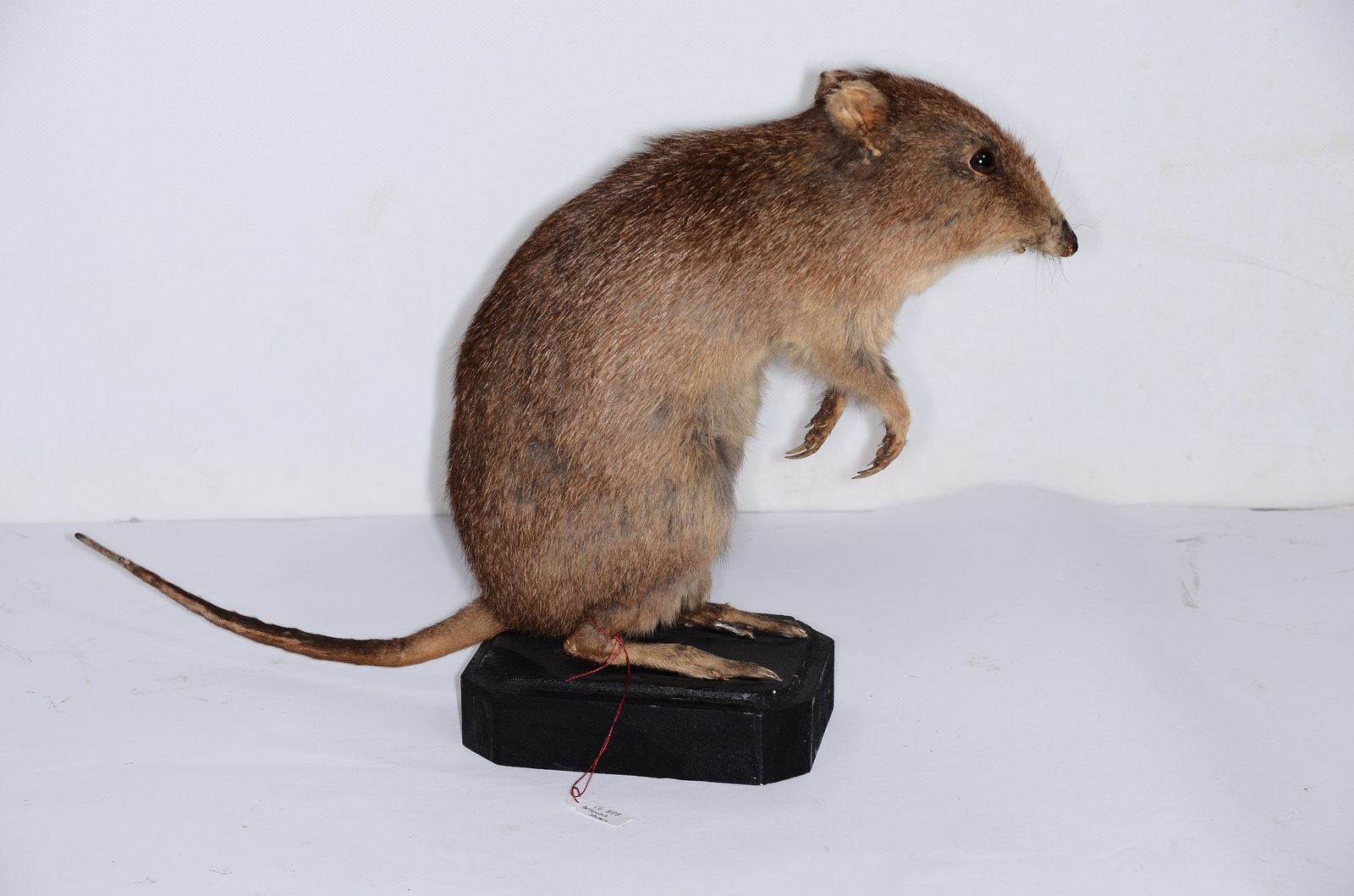Lifting the shroud from the marsupials of Turin
Hidden for over a century, a significant historic collection of marsupials and monotremes has been unveiled in Turin, Italy.
An international collaboration involving scientists from Italy, Australia and Brazil has documented and catalogued an historic collection of marsupials and monotremes housed in the Museo Regionale di Scienze Naturali of Torino, Italy. The 135 specimens from Australia, New Guinea, Wallacea, and Central and South America arrived in Turin between 1819 and 1899 as a result of several major Italian scientific expeditions, which included visits to Sydney and Melbourne during the 1860's.

The Numbat (Myrmecobius fasciatus) was formerly widespread across southern Australia but is now a threatened species confined to southwest Western Australia.
Image: Luca Ghiraldi© Luca Ghiraldi

Turin, Italy.
Image: Pixabay© Pixabay
The Australian Museum’s involvement in this project dates back to an email enquiry in early 2019 from the Collection Manager of Mammalogy and Ornithology at Museo Regionale di Scienze Naturali of Torino, Italy. A recent inventory of that collection brought to light a series of historic marsupial and monotreme specimens whose species identity and scientific importance was uncertain.
Although age and the historic taxidermy process had compromised some morphological features, the inventory and re-examination of the collection enabled most specimens to be identified to species and the taxonomy updated. The 127 marsupial and 8 monotreme specimens documented in the collection include representatives of at least 58 species, mostly from Australia and South/Central America.
Some of the specimens are of very high scientific value representing species that are now globally extinct, including Thylacine (Thylacinus cynocephalus), Crescent Nail-tailed Wallaby (Onychogalea lunata) and Eastern Hare-wallaby (Lagorchestes leporides), or are currently threatened including the Numbat (Myrmecobius fasciatus), Banded Hare-wallaby (Lagostrophus fasciatus), and various quoll, bandicoot and bettong species.

This historic specimen of a Long-nosed Potoroo (Potorous tridactylus) is remarkedly well preserved and presented. Once common through coastal southeastern Australia, this species has declined significantly in the last 200 years.
Image: Luca Ghiraldi© Luca Ghiraldi

A specimen of the enigmatic Bear Cuscus from Sulawesi, Indonesia is a distinct cousin of the Australian Brush-tailed Possum.
Image: Luca Ghiraldi© Luca Ghiraldi

A very well preserved specimen of the extinct Eastern Hare-wallaby (Lagorchestes leporides) from inland southeastern Australia housed in the Museo Regionale di Scienze Naturali of Torino.
Image: Luca Ghiraldi© Luca Ghiraldi
The small series of Eastern Hare-wallaby specimens in Turin are especially significant as these are in remarkedly good condition and represent a very poorly known species. The Eastern Hare-wallaby was once abundant in the grassy inland plains of southeastern Australia, but became extinct in the 1890's following European settlement. By comparison, the Australian Museum holds 4 skins and 5 skulls of this species registered from 1883-1890, but none are in as good condition as those in the Turin collection.
The publication of this revised catalogue will bring the existence of these important specimens to the greater attention of the scientific world, allowing them to be more easily incorporated into ongoing studies of marsupial and monotreme diversity, evolution and conservation. It also highlights a period in Australian history when many mammal species, now rare or extinct, were relatively abundant and were collected or traded between natural history museums worldwide.
Dr Mark Eldridge, Principal Research Scientist, Terrestrial Vertebrates, Australian Museum Research Institute
Dr Sandy Ingleby, Collection Manager, Mammalogy, Terrestrial Vertebrates, Australian Museum Research Institute
More information:
- Ghiraldi, L., Carmignotto, A.P., Tosetto, V., Ingleby, S. and Eldridge, M.D.B. 2021. Revised catalogue of monotremes and marsupials in the historic mammal collection housed at Museo Regionale di Scienze Naturali of Torino, Italy. Bonn zoological Bulletin 70: 1-14. https://doi.org/10.20363/BZB-2021.70.1.001
- Museo Regionale di Scienze Naturali of Torino, Italy website: http://www.mrsntorino.it/cms/









